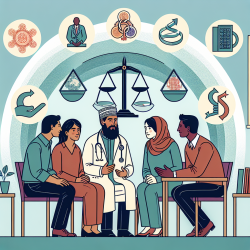Unlock the Secret to Effective STBBI Prevention: What Every Practitioner Needs to Know!
As practitioners dedicated to improving health outcomes, understanding the determinants and interventions for sexually transmitted and blood borne infections (STBBIs) among sex workers is crucial. A critical review by Argento, Goldenberg, and Shannon (2019) provides a comprehensive synthesis of the evidence on this topic, focusing on high-income countries. This blog post will highlight key findings from their research and offer insights on how practitioners can implement these findings to enhance their practice.
The Critical Role of Structural Interventions
Research consistently shows that structural factors such as violence, stigma, and criminalization significantly increase the risk of STBBIs among sex workers. These factors are compounded by individual and interpersonal determinants, including mental health issues and substance use. The review emphasizes that traditional behavioral and biomedical interventions are only moderately successful in reducing STBBIs. Therefore, scaling up structural interventions and community-led programs is essential.
Community-Led Programs: A Promising Approach
Community empowerment, where sex workers take ownership of programs, has shown promise in mitigating STBBI risks. These programs address social and structural barriers to health and human rights, emphasizing the importance of sex worker-led initiatives. For instance, the St James Infirmary in San Francisco operates within a harm reduction framework, providing integrated care to sex workers and is considered a best practice by WHO/UNAIDS.
Decriminalization: A Path to Better Health Outcomes
The review highlights the potential of decriminalization to significantly reduce STBBI risks. Decriminalization can lead to safer work environments, reduce violence, and increase access to health services. Countries like New Zealand and some Australian states have decriminalized sex work, resulting in better health outcomes for sex workers. Practitioners should advocate for evidence-based policies that support decriminalization to enhance health and safety for sex workers.
Implications for Practitioners
Practitioners can play a pivotal role in implementing these findings by:
- Advocating for structural interventions and community-led programs in their practice.
- Supporting policies that promote decriminalization and safer work environments for sex workers.
- Collaborating with community organizations to develop and implement sex worker-led initiatives.
- Ensuring that health services are accessible, non-judgmental, and tailored to the unique needs of sex workers.
By embracing these strategies, practitioners can contribute to reducing the burden of STBBIs among sex workers and improving their overall health and well-being.
To read the original research paper, please follow this link: Preventing sexually transmitted and blood borne infections (STBBIs) among sex workers: a critical review of the evidence on determinants and interventions in high-income countries.










